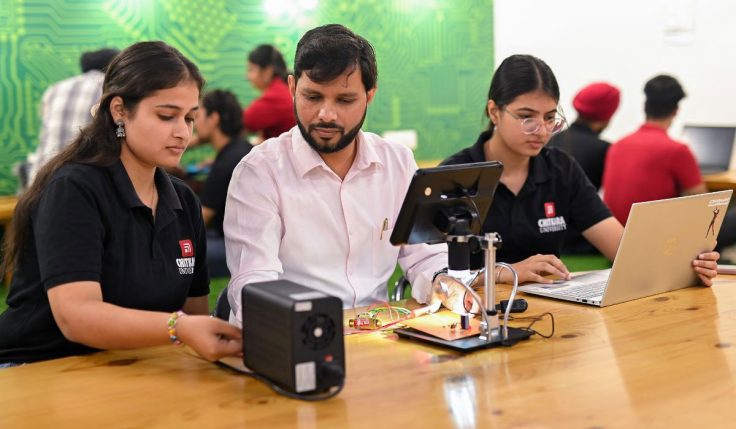Machine learning is a concept that allows the machine to learn from examples and experiences. The machines do not just write the codes but also ensure that the data gets fed into the generic algorithm for building logic based on the given data.
This can be defined as a field of Computer Science that uses statistical techniques to give Computer Systems the ability to learn. It helps to progressively improve performance on a task with data. Without being explicitly programmed, this can be managed. For instance, in education, we see machine learning analytics and artificial intelligence working successfully. AI education is extremely helpful.
Machine learning in education is a form of personalised learning that can be used to give all students an individualised learning experience. The students can be guided in their learning, which can then follow the pace they want and also make their own decisions about what should be learned.
Adaptive Learning: As the name itself explains, adaptive learning involves analysing the performance of a student in real-time and modifying teaching methods and curriculum based on the data.
Adaptive learning helps to have personalised engagement while adapting to the individual for better education. The software helps in coming up with learning paths that the students should be taking, along with valuable suggestions from materials and other learning methods.
Increasing Efficiency: Machine learning also has the capability of offering better content and curriculum organisation and management. It helps in dividing the work accordingly and understanding the potential of all students.
You can effectively figure out what work is best suited for the student and the teacher. It can make the work of teachers and students way easier, and that makes them happy and comfortable with education. This also increases participation and learning while increasing the efficiency of education.
Educators become significantly more efficient as they can handle tasks such as scheduling, classroom management, etc. Hence, educators are free to focus on tasks that cannot be achieved by AI and require a human touch.
Learning Analytics: Often, the teacher can get stuck while imparting a lesson because the insights may be slowly understood by the students. By using the power of analytics, teachers can gain insight into the data and make sense of it to improve the learning process.
Other than this, the learning analytics also suggest that the students can benefit from receiving suggestions about study materials and other learning methods from the software.
Predictive Analytics: Predictive analytics in education is mostly about knowing the mindset and needs of students. It helps in concluding things that may happen in the future.
The examination of the multiple class tests and half-yearly results can help in understanding which students are going to perform well in the exam and which students will have a relatively tough time.
Predictive analytics helps the faculty and parents get alerts and also take appropriate measures. A student can be helped in a better way and can also work on his weak subjects.
Personalized Learning: One of the best uses of machine learning is that it can be customised to meet individual requirements. With this educational model, students can guide their learning step by step.
Students can also have their own pace, and they can make decisions about what to learn and how to learn. They can choose the subjects they may be interested in, the teacher they want to learn from, and the curriculum that they wish to follow.
Evaluating Assessments: Machine learning is a form of AI that is used to grade student assignments and exams a lot more accurately than a human being can. However, some input from humans is always required.
The best results always have higher validity and reliability when a machine does the work because there is a lower chance of making any kind of error.
Also, read this blog post: Top Career Opportunities in Machine Learning Engineering
Conclusion:
It is well known that machine learning offers multiple benefits for improving the quality of education for students. From the provision of tailored and individualised learning experiences to the implementation of machine learning technologies in online education, learning can be revolutionised completely.
At present, it is an exciting time to experience, implement, and even excel at the AI learning techniques that the future may offer.






